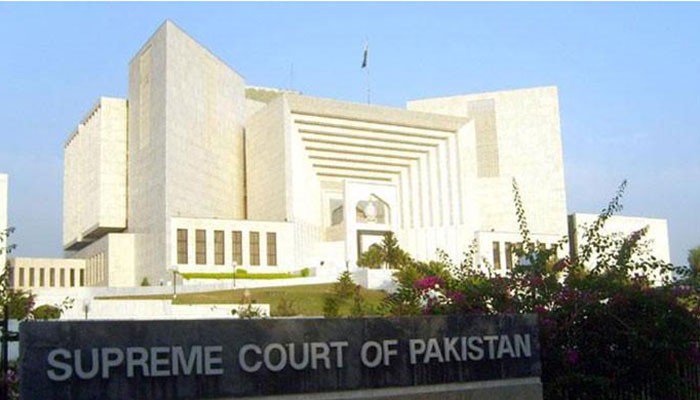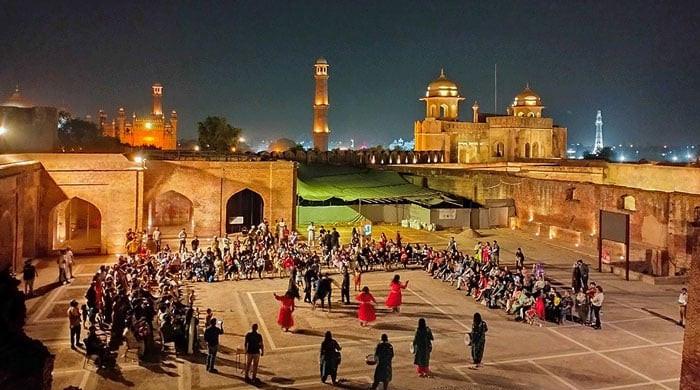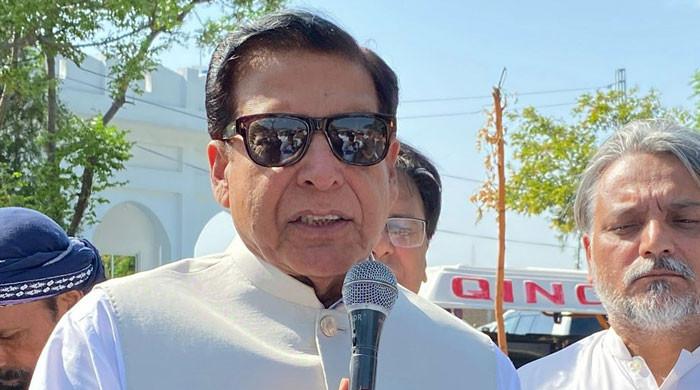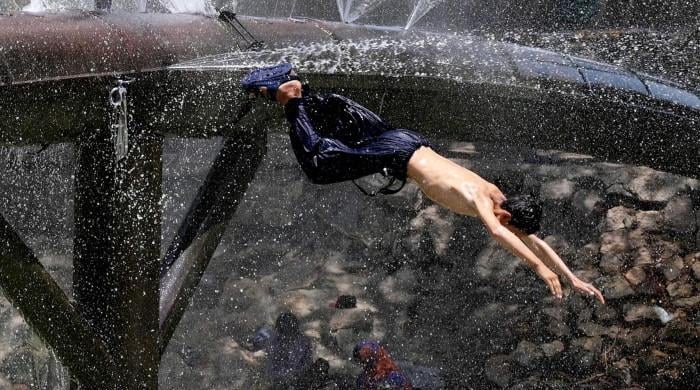Govt responds to CJP’s suo motu notice on corona crisis
The central govt assures the top court that authorities have taken all possible measures to curtail the rapid spread of coronavirus across the country
April 11, 2020

ISLAMABAD: A day after Chief Justice Justice Gulzar Ahmed took his first suo motu notice on the coronavirus situation in the country, the federal government submitted a response to Supreme Court (SC) explaining the measures taken by the state to stem the spread of infection so far.
The top court judge had sent notices to the attorney general, the health secretary and the interior secretary over the inadequate facilities at the government's disposal to combat coronavirus on Friday.
In response to his reservations, the government assured the top court that authorities are taking all possible measures to curtail the rapid spread of the virus in the country.
As a preventive measure, 83 thermal scanners have so far been installed at various locations. Moreover, special counters have been set up to facilitate travelers and suspected coronavirus patients at all international airports, the top court was informed.
In line with other initiatives taken by the state to tackle the crisis, surveillance on the crossing of Taftan, Chaman and Torkham border has been tightened and quarantine centres for suspected patients have been established in 154 districts across the country.
A hearing in the matter by a five-member larger bench will resume on April 13.
On April 1, the same five-member bench, comprising the chief justice, Justice Umar Ata Bandial, Justice Mazhar Alam Miankhel, Justice Sajjad Ali Shah and Justice Amin Ahmed, had also heard the matter of the release of under-trial prisoners amid the virus' outbreak. A petition had been filed against the prisoners' release ordered by the Sindh and Islamabad high courts.
“Under what law can suspects and accused be released?” the CJP had asked while hearing arguments. He noted that it was already very difficult to arrest the accused in cases.
“The police are already busy with the coronavirus emergency. How can we let criminals be out on the roads as well?” he had asked.
He said robberies have already started taking place in Karachi soon after the release of prisoners. The due process of law will have to followed before such a thing can be allowed, the chief justice had ruled.
The Supreme Court then ordered over 500 prisoners — temporarily released to slow the spread of coronavirus — to be re-arrested, as it overturned the high courts’ judgments.
An exception was however made in the case of prisoners accused of minor crimes.
Pakistan has reported 4,700 cases of the coronavirus and 68 deaths. Of the total infected, Punjab has the highest count — 2,280, whereas Sindh comes in second with 1,214.
A countrywide lockdown is being observed until April 14 to curb the spread of the virus. Owing to pressure from the business community, who are facing great losses, as well as concerns surrounding the livelihood of daily wage workers, the provinces are mulling over whether or not to extend the lockdown period.











